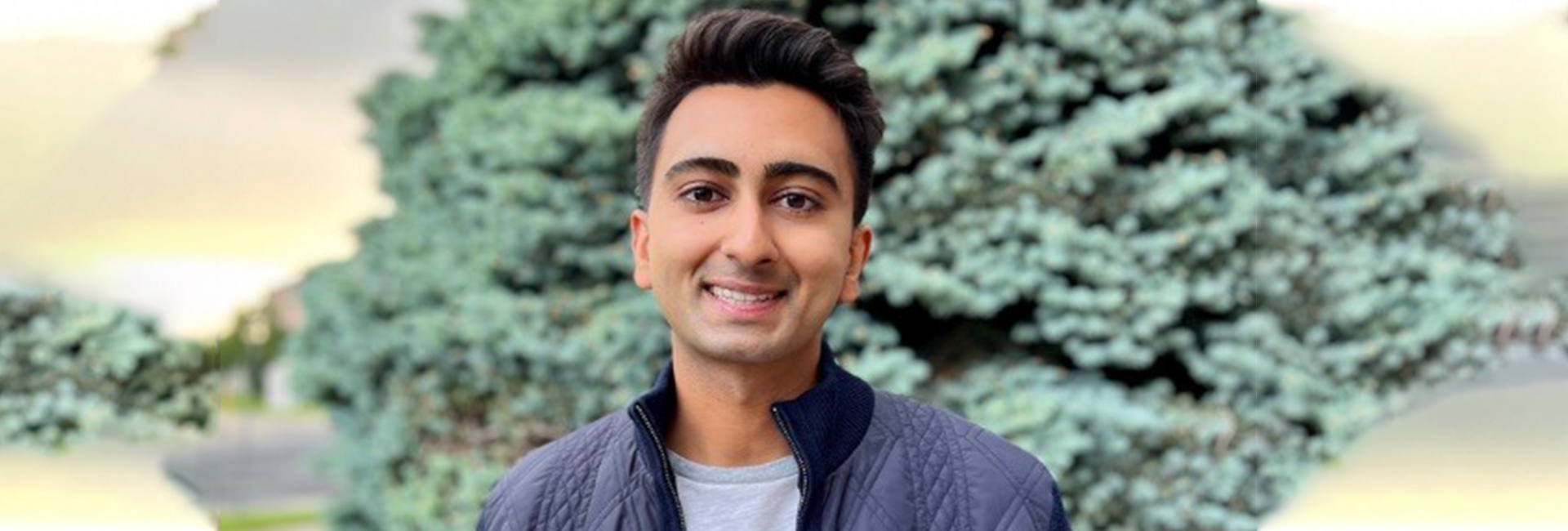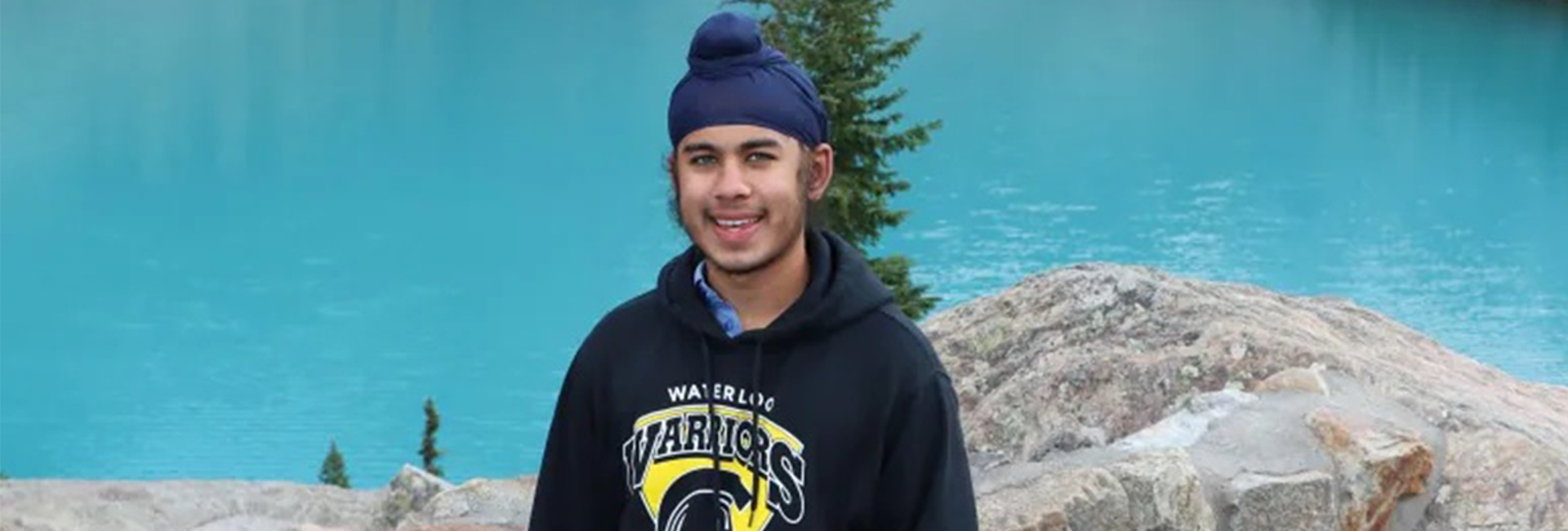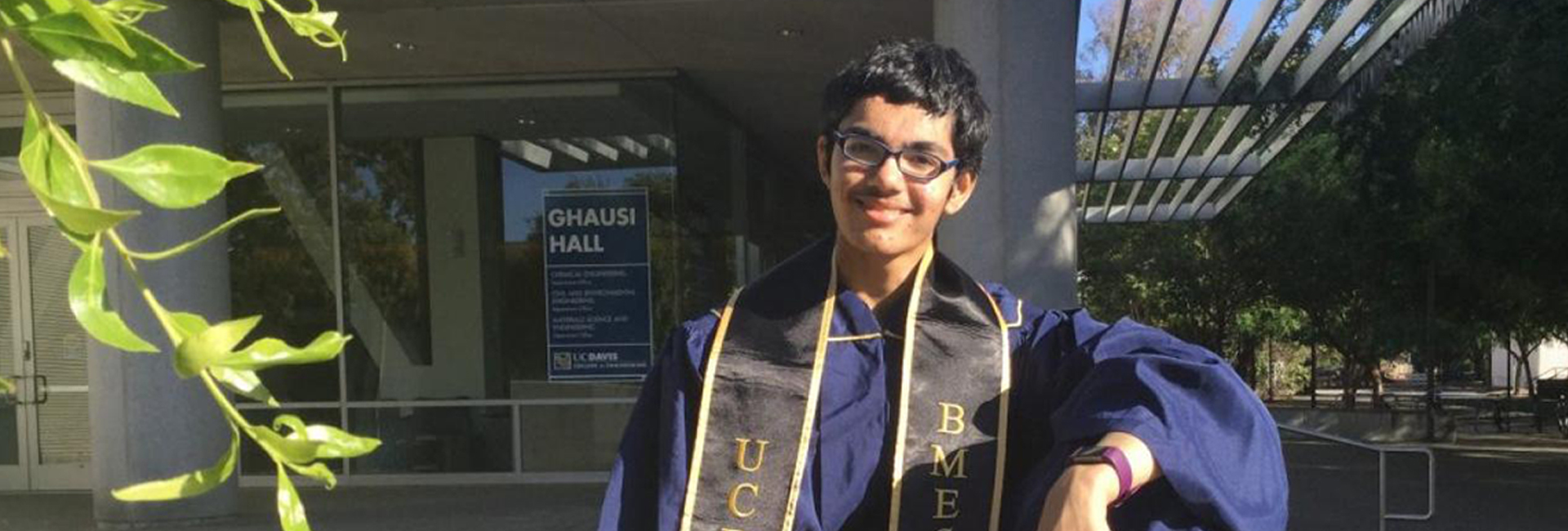(April 22, 2023) Each time he came to India with his family, Anmol Tukrel would visit his aunt, who worked at a hospital for the visually-impaired. He saw the widespread poverty, the lack of awareness and access to quality healthcare, and decided to something about it. Anmol went on to create iDentifi, an AI healthcare app that allows visually impaired people to get information about their surroundings. This was in 2015, in the early days of AI and his efforts saw him featured in a video alongside Canadian Prime Minister Justin Trudeau and Geoffrey Hinton, the ‘father of deep learning’, along with a host of other young Canadian innovators.
Building iDentifi
“In India, the hospital staff would go to small towns and villages and offer free eye care to those who couldn’t afford it,” Anmol said. The next breakthrough also came in India, this time during an internship at a startup named IceCream Labs. “They were using computer vision, the same technology as iDentifi, for advertising. I thought, why not apply it to more humanitarian purposes,” he said. The app could identify 96 languages – Anmol’s method at the time was to look at a world map at his parents’ home in Markham, Canada, and use pins to identify the countries in which the app was being used. The app is also on display at one of Canada’s leading science museums.
The app was meant to provide as much detail as possible. In one demonstration video on YouTube, the user, Jason Fayre, the National Lead for Accessibility and Assistive Tech for CNIB, asked the app to identify a can of coke – “Pop cans are tricky,” he explained. The app was able to tell the difference between a can of Coke and Coke Zero. “There are similar apps but iDentifi is more accurate and can provide an abundance of information, which sets it apart,” said Fayre, who is also visually-impaired.
Finding success
As users could simply download the app from the app store, it gained popularity fairly quickly. The app proved useful “for day-to-day tasks, reading and browsing the web,” the Global Indian said. “For example, if they went grocery shopping and wanted to find out if the can of soda they were holding was Coke or Pepsi, normally they’d have to find someone and ask, however with iDentifi, they can just take a picture of the can and get an audible description with a few seconds.”
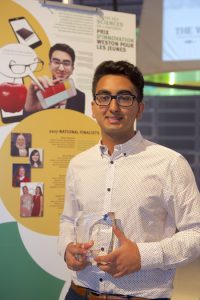
Markham, Ontario teen Anmol Turkel wins Ontario Science Centre’s 2017 Weston Youth Innovation Award for his AI healthcare app, iDentifi, that assists the visually impaired in identifying objects using a smartphone. (CNW Group/Ontario Science Centre)
A search engine to take on Google
Born and raised in Markham, Anmol was interested in technology from a young age. By the time he turned 16, he was building a personalised search engine, intended to take on Google itself- that was his submission to the Google Science Fair. For this, Anmol used a computer with around 1GB of storage space, a spreadsheet programme, a Python-language development settings and some articles from the New York Times to get himself going. A couple of months of design work and about 60 hours of coding later, his prototype was ready.
To test the accuracy of his creation, he limited his search queries to articles from the New York Times, creating fictitious users with different interests and corresponding web histories. This information was fed to the search engine and to Google as well. Anmol submitted his paper to the International High School Journal of Science. He hoped his efforts would take him to Stanford University, which they did. There, he studied computer science and AI. These days, Anmol actually works for Google – he’s an Associate Product Manager for Gmail’s AI team and before that, was an APM intern on the Google Podcasts team.
Diabetes PD
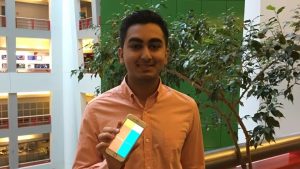

Still captivated by the AI for healthcare space, Anmol went on to design Diabetes PD, this time targeting teenagers with Type-1 diabetes. “It’s meant to make it easier to keep track and access quality information to manage diabetes,” he explained. It allows the user to access resources that are updated in real time, and include travel, employment, meal planning and how to take care of oneself when one is sick. Users can also keep track of information related to diabetes care, monitor sugar levels, and A1Cs, to name a few.
Anmol Tukrel’s story is a powerful reminder of the potential of technology to solve real-world problems. His creation, iDentifi, has already made a significant impact on the lives of visually impaired people around the world. Anmol’s passion for technology, his dedication to his work, and his belief in the power of young people to make a difference have made him a role model for many.

